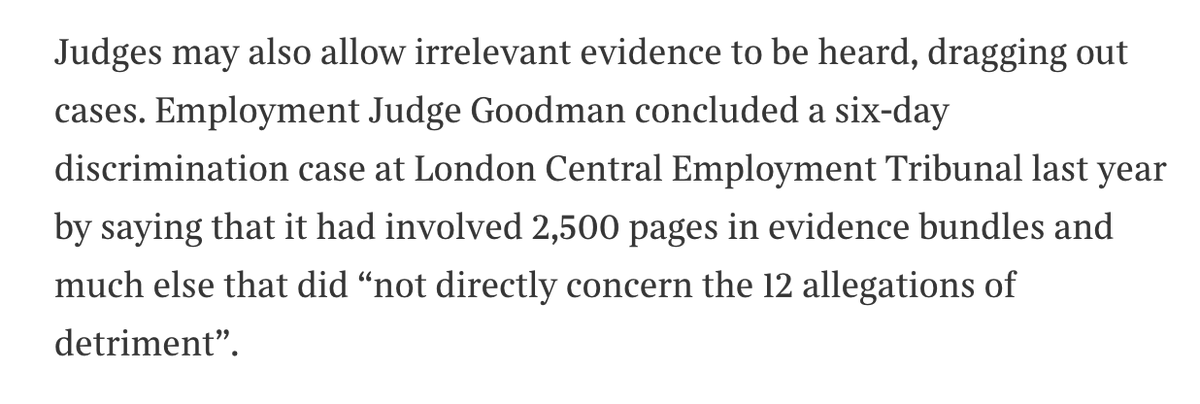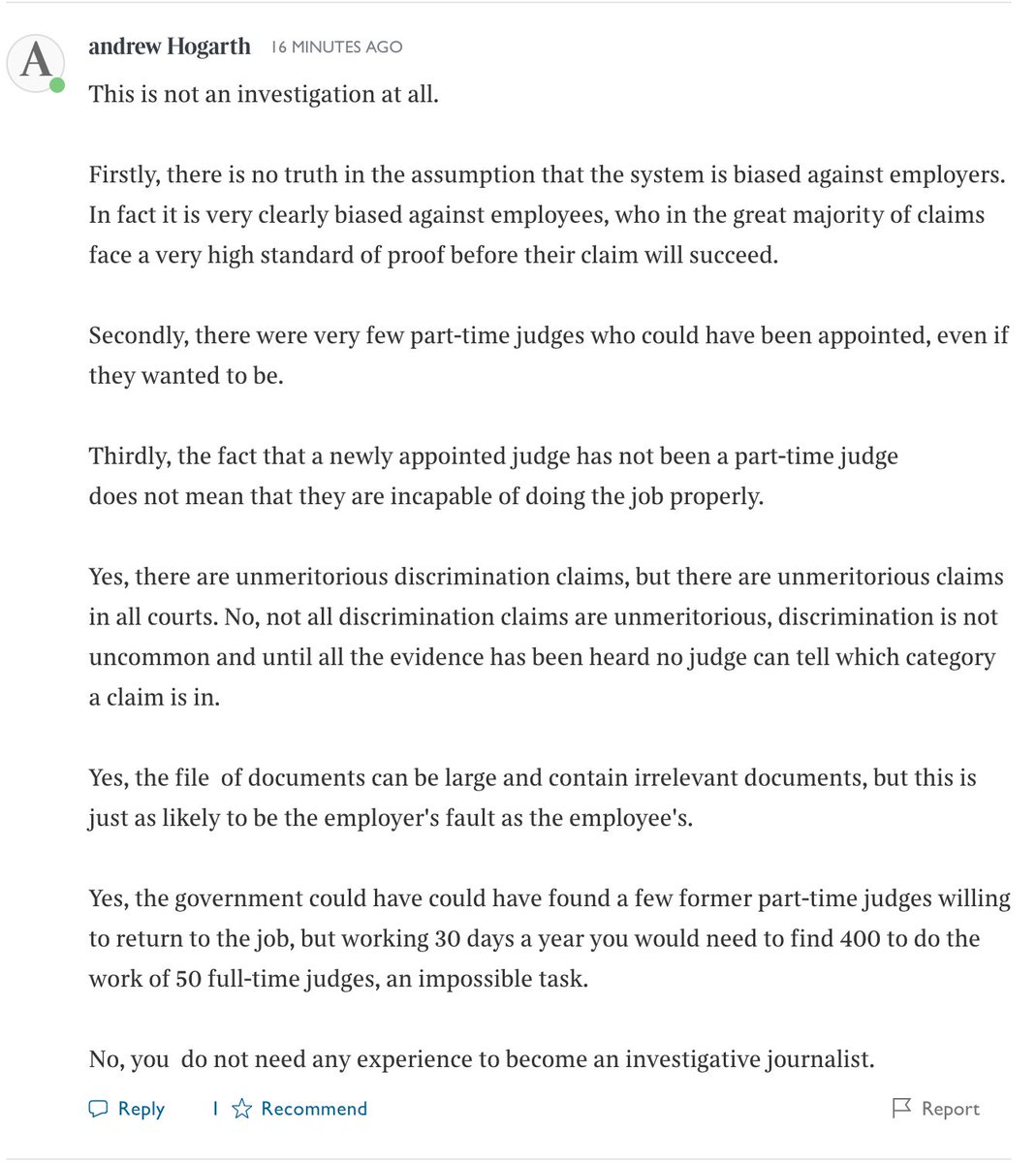Not mentioned in this "investigation" - 1. Employment tribunal fees were imposed by the Tories in 2013 to keep their business supporters happy. When they were imposed, new claims plummeted by 80%. https://www.thetimes.co.uk/article/385a4852-63fa-11eb-ab68-123bacbc1c7b?shareToken=4ceb108e2bcb63845242fe6807db0a00
This was a deliberate attack on access to justice for claimants. 2. THAT is why there was an increase in claims after the Supreme Court ruled that the fees imposed were unlawful. 3. Numbers of employment judges were systematically reduced over 5 years to match the reduced demand.
4. As you would expect - but THAT is why there was a need to recruit lots of employment judges in one go after the Supreme Court ruling, and why it was deemed necessary to waive the usual requirement of sitting experience.
5. To refer to the increased judicial salary bill without referring to the earlier reduced judicial salary bill is frankly misleading. As is to suggest that an easy alternative of throwing out weaker cases is being missed.
6. Employment judges are indeed reluctant to throw out weaker cases without a hearing, but with good reason. It is only possible if a claim has no reasonable prospect of success. That is a high bar. The Court of Appeal has repeatedly warned against misuse of this sanction.
7. The example given here does not support the claim made. All it shows is that EJ Goodman criticised the parties for putting 2,500 pages of evidence in the bundles, some of which she did not see as relevant. It does not show she permitted any irrelevant evidence to be heard.
8. Employment tribunals were not "created" by Tony Blair to "replace" industrial tribunals. Industrial tribunals were simply re-named.
This article reads less like an "investigation" than a briefing from the very same interests who prompted the introduction of tribunal fees in 2013.
Another, very good thread on that article in the Times today https://twitter.com/JasonBraier/status/1356173472842584067

 Read on Twitter
Read on Twitter






